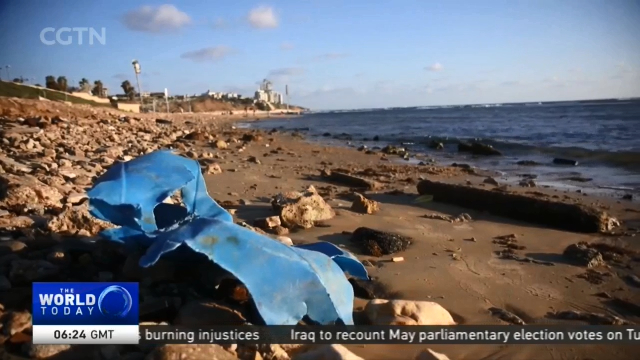
15:19, 03-Jul-2018
Cutting Plastic Pollution: Biodegradable plastic aims to put a dent in pollution problem
Updated
14:41, 06-Jul-2018
02:37

Plastic pollution is a growing concern worldwide. Most of the 270-thousand tons of plastic found in landfills or floating around the world's oceans will take hundreds of years to decompose. To put it simply, plastic will outlast humanity - unless other options are discovered fast. CGTN'S Stephanie Freid in Tel Aviv visited a company that's marketing an alternative.
Swirling garbage masses, dying sea creatures and trash washed ashore on all continents. Images that are re-shaping views and effecting change.
MAYA GAKOVISS CEO, ZALUL ENVIRONMENTAL ASSOCIATION "In the actual sense, the reason governments started changing their policy is in part thanks to China. Half the trash in the world was recycled by China and the minute China shut its doors, suddenly they had to find new solutions."
In January, China upset the world's recycle flow by saying "no more" to accepting the world's plastic and paper waste. The ban is forcing governments to re-think policies and scramble for solutions to the plastic problem, which is: Plastic is the least disposable material on earth.
MAYA GAKOVISS CEO, ZALUL ENVIRONMENTAL ASSOCIATION "It stays here after us, after our children, after our grandchildren. For hundreds of years, each and every fork and each and every spoon or straw they use will still be here."
Researchers and companies developing bio-degradable and disposable packaging are inundated with requests.
DAPHNA NISSENBAUM CEO & CO-FOUNDER, TIPA "It creates somewhat of a hurricane for us. There is a lot of demand coming from Europe, from Australia, from India and from other places as well."
The product is packaging. The company says disintegrates in a compost heap within six months. Terms like "bio-degradable" and "composting" can be misleading, the start up's time-lapse promo illustrates product breakdown. As Europe aims for all plastic packaging to be recyclable by the year 2030, companies offering alternatives face the challenge of keeping prices low. The average cost of bio-degradable packaging is double the standard market rate. Environmentalists aiming for zero packaging, recommend against using "disposable" plastic items like bottles, straws and bags. STEPHANIE FREID, CGTN, TEL AVIV.

SITEMAP
Copyright © 2018 CGTN. Beijing ICP prepared NO.16065310-3
Copyright © 2018 CGTN. Beijing ICP prepared NO.16065310-3